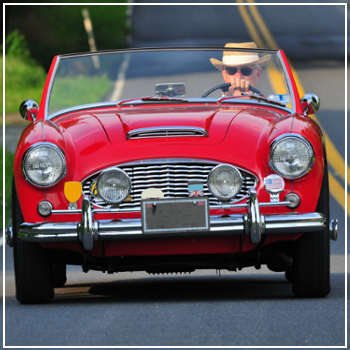4 Common Problems with Sports Cars
If you're thinking about restoring a classic muscle car, whether it's a DIY project or something you're outsourcing to professionals, one major challenge is sourcing the right parts. You won't always find what you need at your local auto shop. Sometimes, you'll need to special-order parts, join a classic car community, or even visit car auctions to track down specific vintage components. Additionally, many classic cars weren't built with the same standards as modern vehicles. If you plan to use your classic car as a daily driver, consider upgrading it with essential safety features like seat belts and airbags to make it safer and more reliable for everyday use. When you're considering a brand-new Porsche or Mercedes, you might assume these luxury brands offer top-tier safety. While they do come equipped with basic safety features, manufacturers often prioritize performance over durability. Over time, owners discover that maintaining these vehicles can be costly. On top of this, sports cars tend to excel in active safety features—those designed to prevent accidents, like advanced braking systems—but fall short on passive safety measures. For instance, many sports cars have fixed bucket seats with limited adjustability, which can compromise headrest positioning. Adjustable headrests, while not always considered, play a crucial role in reducing the risk of whiplash and improving overall comfort. Despite their sleek looks and high-performance engines, sports cars often face design limitations that impact safety and functionality. These vehicles are typically smaller, narrower, and lower to the ground, making them less ideal for everyday use: Not every car on the market undergoes rigorous crash testing. The Insurance Institute for Highway Safety (IIHS) and National Highway Traffic Safety Administration (NHTSA) may not have evaluated the exact model you're considering, especially if it's a niche or low-production vehicle. For example, IIHS only began testing convertibles in 2007—and even then, only for the best-selling models. This means buyers often lack comprehensive safety information until after an accident or mechanical failure occurs. Whether you're restoring an older model or addressing maintenance issues with your current sports car, trust DaSilva’s Auto Body to handle the job. Our team uses state-of-the-art equipment to assess your vehicle thoroughly and provide tailored recommendations for repairs and replacements. To book an appointment, reach out to our Naugatuck location today. The password lock anti-theft door is safer and more convenient than the ordinary anti-theft door. The door lock of the password lock anti-theft door is electronically controlled with a digital keyboard, and a number series is typed in sequence when it is opened. The advantage is that you only need to tell the unlocker the password without duplicating the key. Password Door Lock,Password Gate Lock,Digital Password Lock,Password Protected Door Lock Dongguan Kaisijin Intelligent Technology Co., Ltd , https://www.oemsmartlock.com So you've found the perfect sports car that matches your style and budget. But before you commit to buying it outright or signing off on financing, take a moment to think about the potential challenges that come with owning a sports car. These vehicles can be thrilling to drive, but they also require some extra attention to detail when it comes to maintenance, safety, and upkeep.
So you've found the perfect sports car that matches your style and budget. But before you commit to buying it outright or signing off on financing, take a moment to think about the potential challenges that come with owning a sports car. These vehicles can be thrilling to drive, but they also require some extra attention to detail when it comes to maintenance, safety, and upkeep.1. Scavenging for Parts
2. Uneven Safety Standards
3. Challenging Design Choices
4. Limited Crash Test Data